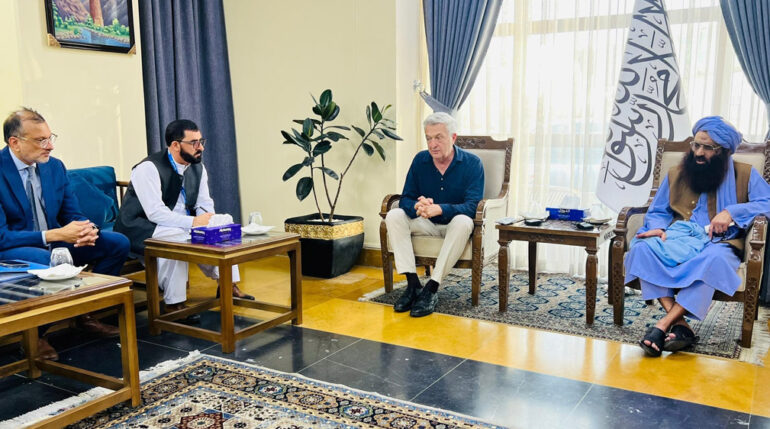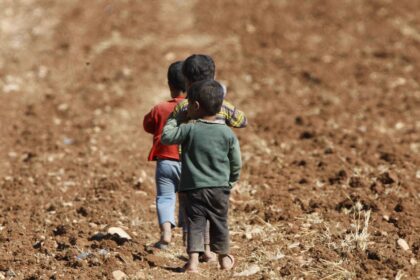RASC News Agency: The United Nations High Commissioner for Refugees (UNHCR) has arrived in Kabul amid a rapidly intensifying humanitarian emergency, seeking to assess the dire conditions faced by returning Afghanistani refugees and to engage with the Taliban authorities on possible avenues for coordinated intervention. This visit underscores mounting international alarm over the Taliban’s sustained incapacity and unwillingness to effectively address the catastrophic plight of hundreds of thousands of displaced individuals forced back into an already destabilized country. According to an official statement issued by the Taliban-controlled Ministry of Refugees and Repatriations on Saturday, July 19, the UNHCR Commissioner is also slated to visit Herat province one of the primary crossing points where the overwhelming majority of returnees from Iran re-enter Afghanistan to directly evaluate the critical situation of families grappling with displacement, homelessness, and an absence of basic services.
Upon arrival at Kabul International Airport, the UN official was greeted by a Taliban delegation led by the deputy of finance and administration of the Ministry of Refugees. In a gesture widely interpreted as symbolic, a Taliban spokesperson framed the refugee crisis as a “shared responsibility” between Afghanistan and the international community a claim that rings hollow given the group’s persistent failures in governance, systematic marginalization of aid organizations, and brutal repression of civil society actors vital to humanitarian efforts. The Taliban’s ministry acknowledged that returnees face acute shortages of shelter, healthcare, education, and livelihoods. Yet, such admissions starkly contrast with the regime’s decades-long record of neglect and active obstruction, which has exacerbated an already dire situation by impeding independent humanitarian access and suppressing women’s participation in aid delivery, thereby undermining any possibility of sustainable reintegration.
While expressing hope that the UNHCR’s visit will mobilize increased international assistance, the Taliban have simultaneously intensified their ideological crackdown on Afghanistani society, prioritizing political control over human welfare. This duality exposes their intent to exploit humanitarian aid as a tool to legitimize their regime while failing to provide even rudimentary protections for returnees. In his remarks, the UNHCR Commissioner condemned the escalating wave of forced deportations from neighboring countries, describing them as a “severe and complex challenge.” He lamented the financial and operational constraints faced by the international community but reaffirmed UNHCR’s unwavering commitment to support Afghanistani returnees despite the increasing strain.
Data released by Taliban officials in Herat indicate that since the start of Saratan alone, over 621,000 individuals have crossed the Islam Qala border from Iran into Afghanistan. This massive influx threatens to overwhelm fragile local infrastructures and deepen an already precarious humanitarian landscape. The surge in returns follows Iran’s controversial revocation of census identification documents held by approximately two million Afghanistani migrants earlier this year. These documents had provided limited protection and access to basic services. The policy shift has rendered countless individuals stateless overnight, accelerating their expulsion. Regional instability has further intensified this forced migration, exposing returnees to heightened vulnerability.
Despite the mounting crisis, the Taliban regime has failed to establish any comprehensive reintegration or social support framework for returnees. Analysts assert that the group’s hollow proclamations of responsibility mask a deliberate strategy to exploit the refugee emergency for political leverage while systematically undermining human rights, ethnic inclusivity, and gender equality. Humanitarian experts warn that without an immediate, coordinated, and inclusive response which necessitates engaging non-Taliban stakeholders and removing ideological obstacles the refugee crisis risks devolving into a full-scale humanitarian catastrophe with profound regional repercussions.






